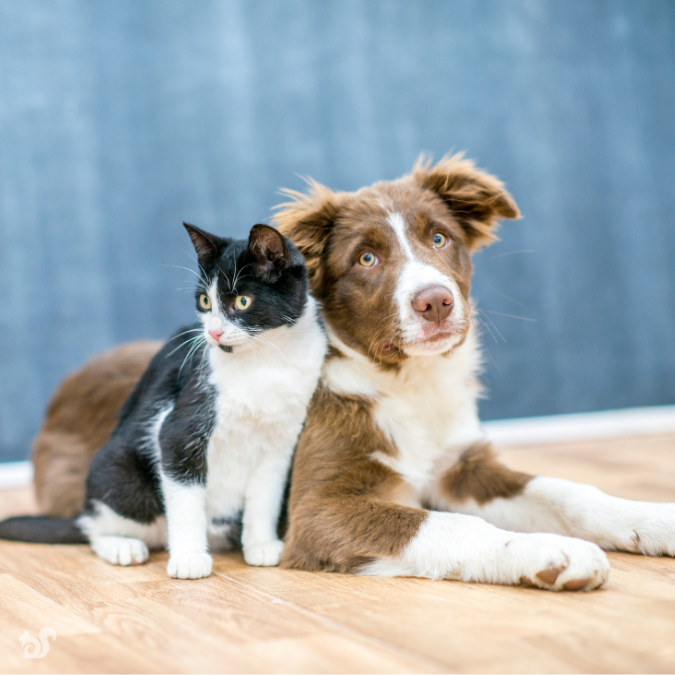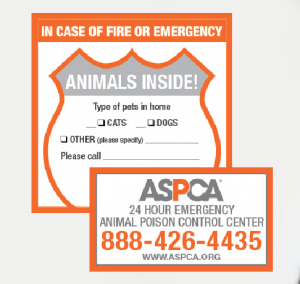Our pets often become more than just animals to us; they are beloved members of the family! Just as we make emergency preparations for our families, we need to make sure our pets are ready for emergencies too. Pets need the same basic necessities as humans—food, water, shelter, and medications—along with a few special items specific to their needs. By making the following preparations, your pet will be ready to go in any emergency situation.

Evacuation Plan
Practicing your family evacuation plan is a great way to ensure that everyone is ready for an emergency, including your pet. If you have a pet, practice evacuating with them so your family knows what to do when an animal is involved. For smaller pets, get a carrier to transport them safely. The more you practice, the more accustomed your pet will become to the carrier.
*Always be sure to bring your pet with you if you need to evacuate. If it's not safe for you to stay, it's not safe for your pet.*
Pet Rescue Alert Sticker
The ASPCA offers free stickers that can be placed in your window to alert rescue personnel about any pets on the premises. Be sure to include the type and number of pets. If you evacuate with your pet, simply write "evacuated" on the sticker to avoid confusion.

Microchips
A microchip is an excellent way to track your pet if they get lost during an emergency. This chip transmits your pet’s location, helping you quickly locate them.
Collars, Tags, and Leashes
During a disaster, your pet may react unpredictably. Ensure your pet always wears a collar with up-to-date ID tags. These should include your pet’s name, your name, and a contact phone number. It’s also a good idea to have a leash in your emergency kit, along with a harness or even a longer leash to accommodate post-disaster living conditions.
Food and Water
Just like humans, pets need a reliable supply of food and water during an emergency. Be sure to stock at least a week’s worth of food—either canned or dry—and enough water for each pet. Consider having freeze-dried chicken or freeze-dried beef treats on hand for good nutrition and to keep your pet motivated.
Emergency Grab Bag
A pet emergency kit, much like a 72-hour kit, can contain all the essential items your pet needs. This can include toys, brushes, bowls, litter, and hygiene supplies to care for your pet. Store the emergency bag with your own disaster supplies for easy access if you ever need to evacuate.
Medications
Keep a copy of your pet’s medical records and any medications they take in your emergency kit. This may include flea, tick, or worm treatments, as well as other prescription medications.
Shelter Arrangements
Not all emergency shelters accept pets. The American Red Cross, for instance, does not. Make arrangements in advance by contacting local animal shelters or your veterinarian to see if they accept pets during emergencies. You can also check with hotels outside your area to see if they waive pet policies during a crisis, or ask friends or family members outside the area if they would be willing to take your pet.
By preparing for your pet's needs and practicing these steps with your family, you can ensure their safety and well-being during any emergency. Pets are important members of the family, and taking the time to plan for their safety will give you peace of mind, no matter what happens.










